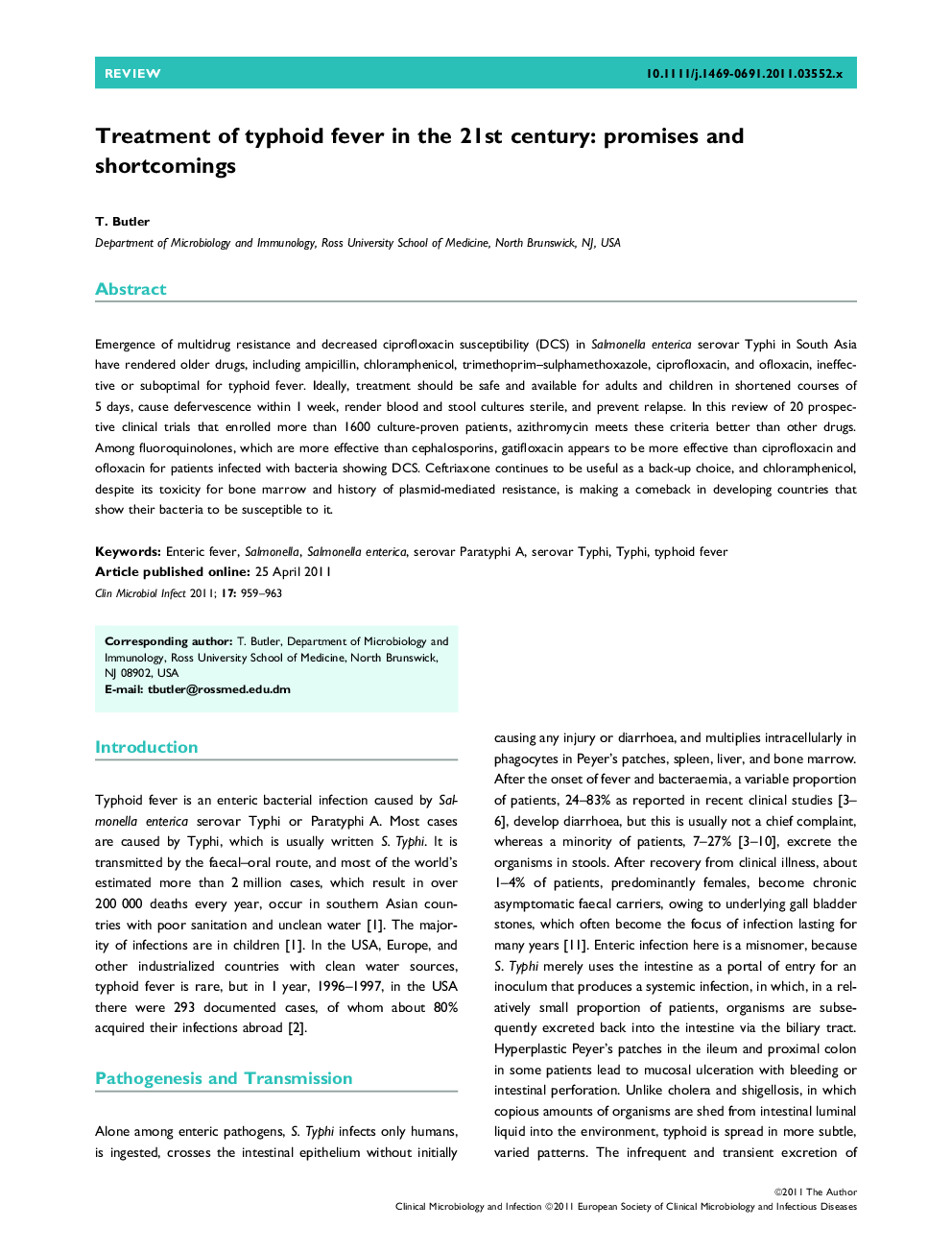| Article ID | Journal | Published Year | Pages | File Type |
|---|---|---|---|---|
| 3397679 | Clinical Microbiology and Infection | 2011 | 5 Pages |
Emergence of multidrug resistance and decreased ciprofloxacin susceptibility (DCS) in Salmonella enterica serovar Typhi in South Asia have rendered older drugs, including ampicillin, chloramphenicol, trimethoprim–sulphamethoxazole, ciprofloxacin, and ofloxacin, ineffective or suboptimal for typhoid fever. Ideally, treatment should be safe and available for adults and children in shortened courses of 5 days, cause defervescence within 1 week, render blood and stool cultures sterile, and prevent relapse. In this review of 20 prospective clinical trials that enrolled more than 1600 culture-proven patients, azithromycin meets these criteria better than other drugs. Among fluoroquinolones, which are more effective than cephalosporins, gatifloxacin appears to be more effective than ciprofloxacin and ofloxacin for patients infected with bacteria showing DCS. Ceftriaxone continues to be useful as a back-up choice, and chloramphenicol, despite its toxicity for bone marrow and history of plasmid-mediated resistance, is making a comeback in developing countries that show their bacteria to be susceptible to it.
